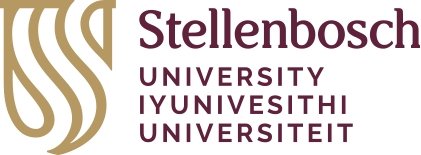
- This event has passed.
Prof Lambert Engelbrecht
29 October 2024 @ 17:3019:30


Five elephants in the room of social work: An autoethnographic meta-analysis
This inaugural lecture is intended for a diverse audience; hence, my approach would be to integrate theory and practice, typical of social work as both a practice-based profession and an academic discipline. I use the metaphor of “the elephant in the room” to substantiate the rationale behind my research over the past 25 years, which has been driven by unseen gaps, ongoing problems and ever-present challenges that society is aware of, but ignores. This metaphor conveys my research repertoire in a creative and accessible way, fostering deeper thinking, encouraging reflection, and expressing the inexpressible.
The most valid, credible and reliable methodology for identifying the elephants in the room of social work, as explored in my past research, and for reflecting on, analysing and critiquing my own research outputs, is an autoethnographic meta-analysis. Following this approach, I am both the subject and the analyst as I engage in self-reflection and interpretation of my own research within a global and South African social work context. This first requires me to introduce my own “room”: I must acknowledge the people, places and processes that have contributed to my personal knowledge, skills and values. This is followed by an exposition of what I do in my room, thereby defining the autoethnographic meta-analysis research methodology. Essentially, this entails a systematic review and qualitative analysis of studies selected from a universe of 215 research outputs in which I was involved, applying specific criteria. Furthermore, a description of the “four walls” of the room of social work is fundamental to establish the paradigm of the unit of analysis. To this end, I elucidate the global and local evolution of social work, a global definition of social work, local attributes, and the configuration of social work practice in South Africa.
Subsequently, a robust process of thematic analysis is undertaken to generate five recurring themes from the aforementioned data pool, which are presented as elephants in the room of social work: (i) social welfare policy and social development; (ii) social development funding and political influences; (iii) social work management and supervision; (iv) social work teaching and learning; and (v) social work practice and research.
This research methodology enables me not only to identify and present each elephant in the room of social work, but also to examine them as cross-field, intersectional themes that were not apparent in my initial research studies. Therefore, implications for social work practice, and recommendations on how to remove the identified elephants from the room, are suggested. This, in turn, offers a framework for my future contributions to the room of social work, and thus for my prospective research trajectory.
WATCH THE INAUGURAL LECTURE HERE
Short biography
Lambert K Engelbrecht is a full professor and former chair of the Department of Social Work at Stellenbosch University (SU). He holds a BDiac and DiacHons (Social Work) from Huguenot College, as well as a master’s degree in Social Work Management and Supervision (cum laude) and a DPhil (Social Work) from SU.
He began his professional career as a frontline social worker in 1986 and has since accumulated extensive experience as a supervisor, manager, lecturer and researcher in this field. Over the past three decades, he has taught various undergraduate and postgraduate Social Work modules and supervised more than 50 master’s and doctoral students at SU. In addition to extensive international lecturing, module moderation, thesis examinations, workshop presentations, and participation in conferences, he serves as the editor-in-chief of Social Work/Maatskaplike Werk, a top-rated, internationally accredited open-access journal. On the community front, he is involved in the management, supervision and policy practices of designated private and public social work organisations at a global level.
He has published extensively as a solo author, as part of international research teams as well as with postgraduate students in his fields of specialisation. These include social work, social development, social work education, management and supervision, and the influence of neoliberal discourse on social welfare in both global and South African contexts. His academic impact is reflected in over 1 500 citations of his work, a significant portion of which also serves as prescribed reading at both local and international universities. His more than 215 research outputs have earned him several distinguished accolades, including from the National Association of Social Workers (2016), the Suid-Afrikaanse Akademie vir Wetenskap en Kuns (2017 Stals prize), the Association of South African Social Work Education Institutions (ASASWEI) (2019), and SU (2021 Chancellor’s Award). In 2018, he became the first full-time Social Work lecturer in South Africa to be rated as an internationally acclaimed researcher by the National Research Foundation.

Recent Comments